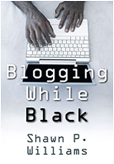Local Advocate Shares Work with HIV/AIDS
World AIDS day was almost two weeks ago, but at the rate that HIV/AIDS is spreading through the African-American community, we have to address the issue more than once a year. I recently had an interesting discussion with June Trimble, who works on HIV/AIDS related programs at UT Southwestern here in Dallas. The information she shared with me was mind boggling, and I thought it would be great if more people could get a feel for the work that's being done.
DSB: June, what are some of the things you do both personally and professionally in regards to HIV/AIDS?
JT: I’ll start with my work professionally. I work for a university that is the lead agency for two Ryan White CARE Act Title IV Programs. What we do is provide funding to several community-based organizations to serve HIV impacted women, infants, children, youth and their affected family members. We operate as a network of coordinated services to meet the medical and social needs of the target population. Aside from the administrative arm of the project we also offer a Women’s Enrichment Program for HIV+ women and provide Peer support to HIV + young people 13-24.
Personally, I don’t necessarily target HIV/AIDS prevention directly. I work with young people in a lot of capacities; therefore I try to establish a relationship with them so that they know that there is someone available to listen to them and cares about them. Once a relationship is establish, then I’m able to educate them about life experiences that includes discussing the risky behaviors young people are engaging in that puts them at risk for HIV.
DSB: Could you tell me about Dallas Family Access and Youth Angle? JT: Sure. Dallas Family Access Network (Dallas FAN) is a network of medical and social service agencies that coordinates the care for HIV positive women, infant, children, youth and their affected family members. The network of services includes HIV primary medical care and specialty OB/GYN care for women, infants (exposed/positive), children and youth, access to research, mental health services, substance abuse counseling, case management, client advocacy; housing assistance, transportation, support groups for HIV positive client and their families, and HIV testing and counseling to the high risk populations. Dallas FAN's priority is to enhance services for HIV positive women; who are often the key to a stable home for the entire family.
Youth Angle is also a network of services that begins with targeted case finding to the highest risk young people ages 13-24. Youth Angle's goal is to encourage and offer HIV testing and enroll those who test positive into a system of care. Once a young person is identified, Youth Angle brings them into a youth-sensitive medical, social and support service program.
The agencies/programs are from the community and are comprised of 4 medical sites including primary medical care services, case finding, case management, counseling and testing, behavioral intervention programming, individual/group counseling, substance abuse programming, transportation, truancy programming and subspecialty services for pregnant youth and peer support.
DSB: What are some of the major challenges you face in educating school aged children and youth about the risk of contracting a sexually transmitted disease?
JT: The biggest challenge we have is accessing school-aged young people. We are challenged daily with creating new innovative ways to reach young people where they are. Because stigma is one of the biggest barriers when it comes to HIV, discussions of HIV, which is a sexually transmitted disease, is often rejected or not well received in schools, churches and in some community settings. Youth Angle continues to use non-traditional methods to educate young people about the behaviors that put them at risk for HIV and other sexually transmitted diseases.
DSB: Do you have any thoughts on why the African-American population represents such a disproportionately high percentage of those living with HIV and AIDS?
JT: Some of the data we have recently reviewed shows that poverty levels, education or the lack there of, and environmental factors play a role as to why the increase in HIV has grown in the African-American community.
DSB: Is there anything black churches can do to address this issue?
JT: Yes, provide a safe haven for young people to express themselves and the social issues they are facing. One of the things young people always say is that they don't have anyone to talk to and parents don’t listen– they just don’t understand. Opportunities need to be available for young people to talk with parents about what they deal with and for the parents to talk back to young people on what they are responsible for and what’s acceptable behavior
DSB: What advice would you give to parents who are raising teenagers in the current environment where sex has become such a big part of the culture?
JT: Know your child. Find out your child’s interest, monitor who they are hanging with and where they are hanging out. Meet their friend’s parents, find out what is going on at school, and monitor what they listen to and watch on TV. Be more open about talking about sex. Don’t expect that your child is going to come to you. Parents sometimes have to go to their child. Yeah they may brush you off by saying “I’m not doing that,” but instead of waiting for them to open the door — parents should open the door.
DSB: Thanks June.




